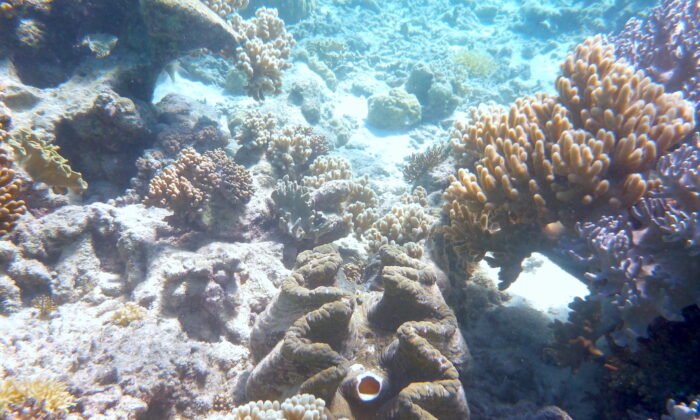Farm Pollutants Still Abundant in Barrier Reef Waters
Despite efforts to improve it, water on the Great Barrier Reef remains contaminated with harmful farm pollutants and sediment, as shown by a recent report card. The assessment, released by the federal and Queensland governments, comes at a time when Australia is striving to prevent the reef from being listed as a World Heritage site in danger. Unfortunately, the report does not paint a positive picture, especially following the latest coral bleaching event— the fifth in the past eight years.
The report highlights inadequate progress in addressing two significant threats to water quality stemming from agriculture: dissolved inorganic nitrogen from fertilizers and sediment loads. It also indicates that crucial targets aimed at safeguarding the overall health of the reef, including corals and seagrasses, will not be achieved by 2025.
These findings are concerning, especially in light of a UN monitoring mission conducted in 2022 to evaluate reef conservation efforts, which identified water quality issues as a major concern. The mission recommended listing the reef as in danger, prompting the need for Australia to demonstrate substantial improvement by July when the World Heritage Committee convenes.
The report covers the period between 2021 and 2022, when the previous government was in office. While some progress was made towards specific water quality targets during this time, efforts to address key pollution sources were minimal.
For instance, the report indicates a marginal decrease (0.7%) in dissolved inorganic nitrogen loads attributed to fertilizer use between 2020 and 2022, far below the targeted reduction of 60% by next year. A similar situation exists for sediment levels, where only 16% reduction has been achieved compared to the required 25% by next year.
Despite these challenges, pesticide management has shown promising progress, with 97.4% and 95% of aquatic species considered safe from harm in 2021 and 2022, respectively. Despite this overall positive assessment, certain regions and catchments still face significant pesticide-related risks.
Concerns have been raised by organizations like the Australian Marine Conservation Society about the lack of progress in meeting targets and ongoing land clearing activities that undermine water quality programs. It is critical for Australia to demonstrate significant improvement to address the concerns raised by the World Heritage Committee.
Federal Environment Minister, Tanya Plibersek, remains optimistic about the future, emphasizing increased funding commitments by both federal and Queensland governments to enhance water quality programs and accelerate progress towards achieving set targets.






